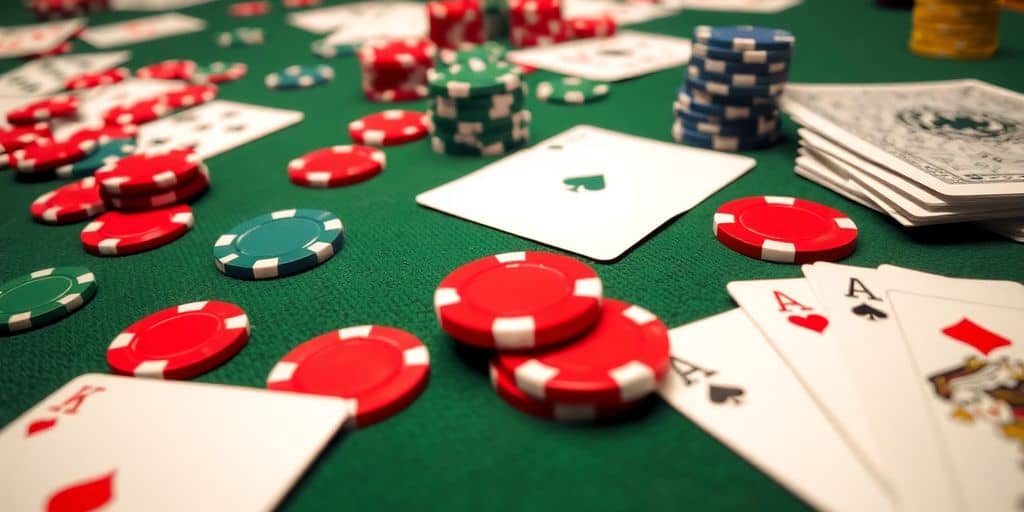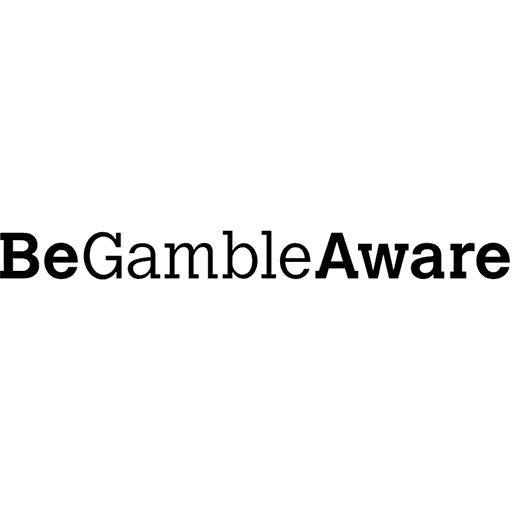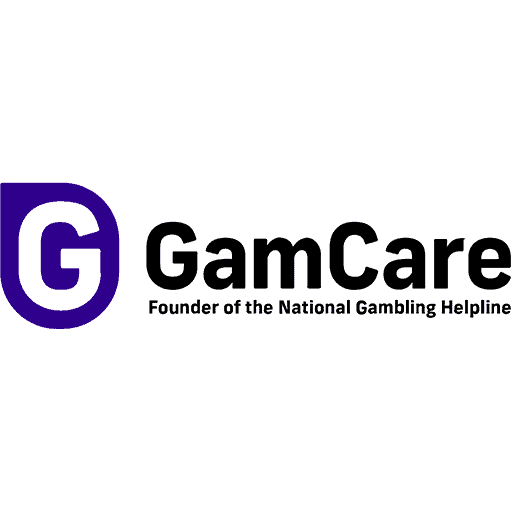If you’re curious about the legality of gambling in Canada, you’re not alone. The rules can be pretty confusing. Gambling laws in Canada depend on various factors, including the type of gambling and where it’s happening. While the Criminal Code of Canada allows certain forms of gambling, each province has its own set of rules, which means what’s legal in one place might not be in another. Let’s break down the legal landscape as it stands in 2025.
Key Takeaways
- Gambling is generally legal in Canada, but each province has its own rules.
- Online gambling is regulated at the provincial level, leading to different laws across the country.
- The legalization of single-event sports betting was a significant change in 2022.
- Penalties for illegal gambling can include fines and imprisonment, depending on the offense.
- Responsible gambling practices are emphasized to protect players and ensure fair play.
Understanding Gambling Laws in Canada
Overview of Federal Regulations
Gambling in Canada isn’t a simple yes or no question. The federal government sets the stage with the Criminal Code, which basically says that, generally, gambling is illegal. However, there’s a big exception: provinces get to make their own rules. This creates a bit of a patchwork across the country. Think of it like this: the federal law is the broad outline, and the provinces fill in the details. This division of power is key to understanding Canadian gambling laws.
Provincial Authority and Control
Each province and territory in Canada has the power to regulate gambling within its borders. This means they decide what types of gambling are allowed, who can offer it, and how it’s run. You’ll find that some provinces are more open to gambling than others. For example, Ontario has a pretty open online gambling market, while other provinces might be more restrictive. This provincial control extends to everything from casinos and lotteries to online platforms. It’s really up to each province to decide what’s best for them. Here’s a quick look at how some provinces handle gambling:
- British Columbia: Regulated by the British Columbia Lottery Corporation (BCLC) and Gaming Policy Enforcement Branch (GPEB).
- Alberta: Overseen by the Alberta Gaming, Liquor & Cannabis (AGLC).
- Quebec: Governed by the Régie des alcools, des courses et des jeux (RACJ) and Loto-Québec.
Types of Legal Gambling Activities
So, what kind of gambling is actually legal in Canada? Well, it depends on where you are. Generally, you’ll find that lotteries, casinos, and sports betting are common across most provinces. However, the specific rules and regulations can vary quite a bit. For example, some provinces might allow certain types of casino games that others don’t. Online gambling is another area where there’s a lot of variation. Some provinces have their own online platforms, while others allow residents to use offshore sites. It’s important to check the specific laws in your province to make sure you’re gambling legally.
It’s worth noting that the legalization of single-event sports betting in 2021 was a big change. Before that, you could only bet on parlays (multiple games at once). Now, you can bet on individual games, which has opened up a whole new world of possibilities for sports fans.
The Role of Provinces in Gambling Regulation
Canada’s gambling scene isn’t a one-size-fits-all deal. The federal government sets some ground rules, but the real power lies with the provinces. They get to decide what’s legal, how it’s run, and who gets to play. This creates a patchwork of regulations across the country, which can be confusing if you’re not paying attention. Let’s break down how this all works.
Provincial Gambling Corporations
Each province typically has its own corporation or agency that oversees gambling activities. These corporations manage everything from lotteries to casinos, and even online platforms. Think of them as the gatekeepers of gambling in their respective regions. For example, the British Columbia Lottery Corporation (BCLC) handles gambling in BC, while Alberta has the Alberta Gaming, Liquor & Cannabis (AGLC). These organizations are responsible for ensuring that gambling is conducted fairly, responsibly, and in accordance with provincial laws.
Differences in Provincial Laws
Because each province has the authority to set its own rules, there are significant differences in what’s allowed and how it’s regulated across Canada. Some provinces, like Ontario, have embraced online gambling with open arms, creating a fully regulated market with numerous private operators. Others are more cautious, sticking to government-run platforms or limiting the types of games available. Here’s a quick look at some key differences:
- Online Gambling: Ontario has a competitive, open market. British Columbia and Quebec operate their own online platforms. Other provinces may have different approaches or restrictions.
- Casino Availability: The number and types of casinos vary widely. Some provinces have large, resort-style casinos, while others have smaller, more limited operations.
- Sports Betting: While single-event sports betting is now legal across Canada, the specific rules and platforms for placing bets can differ from province to province.
It’s important to check the specific regulations in your province to understand what’s legal and what’s not. Don’t assume that what’s allowed in one province is also allowed in another.
Indigenous Gambling Regulations
Indigenous communities also play a role in gambling regulation in Canada. Some Indigenous groups have established their own gaming commissions and operate casinos or other gambling facilities on their lands. These operations are often governed by agreements with the provincial governments, but they also reflect the unique rights and interests of Indigenous communities. The Kahnawake Gaming Commission, for example, is a well-known regulatory body that oversees online gambling activities from the Mohawk Territory of Kahnawake in Quebec. These regulations ensure compliance, security, and responsible gambling standards.
Online Gambling: A Complex Landscape
Online gambling in Canada? It’s not as simple as you might think. While the idea of playing casino games or betting on sports from your couch sounds easy, the legal side of things is actually pretty complicated. It’s like trying to assemble furniture without the instructions – you might get it done, but there’s a good chance something will go wrong. The laws can change depending on where you are in the country, and what kind of gambling you’re doing.
Legal Status of Online Gambling
So, is online gambling legal in Canada? The short answer is: it depends. The federal government sets some basic rules, but each province gets to decide the specifics. Some provinces fully embrace online gambling, offering their own platforms. Others are more restrictive. It’s a bit of a patchwork, and it can be confusing to keep track of it all. For example, Alberta’s proposed legislation aims to regulate private online gambling, shifting players from unregulated sites to a safer, legal environment.
Provincial Regulations for Online Platforms
Each province that allows online gambling has its own way of doing things. Some run their own online casinos and sportsbooks, while others allow private companies to operate under their rules. This means the games available, the betting limits, and even the age restrictions can vary from province to province. It’s kind of like having ten different versions of the same app, each with its own quirks and features. Here’s a quick rundown:
- Ontario: Has a fully open, regulated market with many private operators.
- British Columbia: Operates its own platform, PlayNow.com.
- Quebec: Also runs its own platform through Loto-Québec.
It’s important to check the specific regulations in your province before you start gambling online. This will help you avoid any legal trouble and ensure that you’re playing on a safe and legitimate platform.
Player Rights and Responsibilities
As an online gambler in Canada, you have certain rights and responsibilities. You have the right to expect fair games, secure transactions, and responsible gambling measures. You also have a responsibility to gamble responsibly, to be aware of the risks involved, and to follow the rules set by the province. Here are a few things to keep in mind:
- Set a budget and stick to it.
- Don’t chase your losses.
- Be aware of the signs of problem gambling.
- Only play on licensed and regulated platforms. This ensures [regulated online gambling platforms](regulated online gambling platforms) are safe and fair.
Recent Changes in Gambling Legislation

Impact of the 2022 Online Gambling Market
The year 2022 was a big one for online gambling in Canada, especially with Ontario opening its doors to a regulated private market. Before that, it was mostly provincial monopolies running the show. This shift brought in a ton of new operators, offering more choices for players but also raising questions about oversight and responsible gambling. It’s been a learning curve, figuring out how to balance competition with keeping things fair and safe.
Legalization of Single-Event Sports Betting
For years, Canadians could only bet on sports through parlays, meaning you had to predict multiple outcomes correctly to win. That changed when single-event sports betting became legal. This was a game-changer, making sports betting way more appealing and competitive with offshore casinos. Now, you can put money on a single game, just like in many other countries. It’s brought in more revenue and attention to the gambling scene.
Future Trends in Gambling Laws
It feels like gambling laws are always changing. With provinces having the power to decide what’s allowed, we’re seeing different approaches across the country. Some provinces might become more open to new forms of online gambling, while others might focus on tightening regulations.
One thing’s for sure: technology will keep pushing things forward. We’ll likely see more mobile betting, maybe even virtual reality casinos down the road. The challenge will be keeping up with these changes and making sure players are protected.
Here’s a quick look at some potential future trends:
- More focus on responsible gambling tools and resources.
- Increased use of data analytics to detect problem gambling.
- Possible integration of blockchain technology for secure transactions.
Penalties for Illegal Gambling Activities
Understanding Criminal Code Violations
Okay, so you’re wondering what happens if you get caught doing something you shouldn’t with gambling in Canada. Well, the Criminal Code is pretty clear about it. Operating an unlicensed gambling house or participating in illegal betting activities can land you in hot water. It’s not just a slap on the wrist either; we’re talking about actual criminal charges. The specifics depend on what exactly you did, but ignorance of the law isn’t really a defense here. Provinces handle most of the enforcement, but the Criminal Code sets the stage.
Fines and Imprisonment Risks
So, what kind of trouble are we talking about? It varies, but here’s the gist:
- Fines: These can range from a few hundred dollars to tens of thousands, depending on the scale and nature of the illegal gambling. Think about it – a small-time poker game in your basement is different than running a full-blown illegal casino.
- Imprisonment: Yes, jail time is a real possibility. For serious offenses, like running an illegal gambling operation, you could face months or even years behind bars. Operating illegal gambling can lead to some serious time.
- Seizure of Assets: The government can seize any money or property involved in the illegal gambling activity. That includes cash, cars, houses – anything they can link to the operation.
It’s important to remember that these penalties are not just for the operators. Participants in illegal gambling activities can also face fines and other consequences. So, even if you’re just a player, you’re not necessarily in the clear.
Enforcement of Gambling Laws
Enforcement is a joint effort. The feds set the rules with the Criminal Code, but the provinces are the ones on the ground, making sure those rules are followed. Each province has its own gaming commission or similar body that’s responsible for regulating gambling within its borders. They investigate illegal activities, issue fines, and work with law enforcement to prosecute offenders. They also work to protect player rights and ensure fair play. It’s not just about catching the bad guys; it’s about maintaining the integrity of the gambling industry as a whole.
Responsible Gambling Practices

Gambling can be a fun pastime, but it’s super important to keep it in check. Nobody wants what’s supposed to be a good time to turn into something stressful or harmful. Let’s talk about how to keep gambling responsible and enjoyable.
Importance of Player Protection
Player protection is all about making sure you have the tools and knowledge to stay safe while gambling. It’s not just up to the casinos or online platforms; it’s also up to you. Knowing the risks and setting limits are key. Think of it like driving – you need to know the rules of the road and wear a seatbelt.
Here are some things to keep in mind:
- Always gamble with money you can afford to lose. Don’t use rent money or grocery money.
- Set time limits. It’s easy to lose track of time when you’re having fun, but setting a timer can help.
- Take breaks. Step away from the game every so often to clear your head.
Gambling should be seen as entertainment, not a way to make money. If you start chasing losses or gambling becomes a way to escape problems, it’s time to take a step back.
Resources for Responsible Gambling
There are tons of resources out there to help if you think you might have a problem, or if you just want to learn more about responsible gambling. You’re not alone, and there’s no shame in reaching out. Here are a few options:
- Provincial Gambling Helplines: Each province has its own helpline that you can call for confidential support and advice. Check your local government’s website for the number.
- The Responsible Gambling Council: This organization offers information, resources, and support for problem gambling. They have a website with lots of helpful stuff.
- Gamblers Anonymous: This is a support group where you can share your experiences and get help from others who are going through the same thing.
Regulatory Measures for Safe Gambling
Governments and gambling operators have a role to play in keeping things safe too. They put measures in place to protect players and prevent problem gambling. These measures can include:
- Age Verification: Making sure that only adults are gambling.
- Self-Exclusion Programs: Allowing people to ban themselves from casinos or online platforms.
- Deposit Limits: Setting limits on how much money people can deposit into their accounts.
Here’s a quick look at some common regulatory measures:
| Measure | Description |
|---|---|
| Age Verification | Casinos and online platforms must verify that players are of legal gambling age. |
| Self-Exclusion | Players can voluntarily ban themselves from gambling establishments. |
| Deposit Limits | Limits on the amount of money a player can deposit within a certain timeframe. |
| Responsible Gambling Ads | Operators are required to include responsible gambling messages in their advertising. |
By understanding these measures, you can better understand how the industry is trying to promote safe gambling practices.
The Evolution of Gambling in Canada
Historical Context of Gambling Laws
Okay, so gambling in Canada? It’s got a past. For a long time, it was pretty much a no-go, thanks to the Criminal Code way back in 1892. But, things started to change, slowly. The government realized they could use gambling to help charities, so they started easing up a bit. Then, in 1969, lotteries became legal. That was a big deal because it led to provinces setting up their own lottery corporations. It’s interesting to see how gambling regulations have changed over time.
Key Milestones in Gambling Legislation
There were some real turning points that shaped what we see today. Check out this timeline:
- 1969: Lotteries get the green light.
- 1985: Provinces get more control, can run casinos and stuff.
- Early 2000s: Online gambling starts getting attention, but it’s a bit of a legal gray area.
- 2022: Ontario launches its regulated online gambling market – a huge step.
It’s wild to think about how much things have changed. From being totally illegal to having provinces run their own casinos and online platforms, it’s been quite a journey. The recent legalization of single-event sports betting is another big milestone, showing how Canada’s gambling laws are trying to keep up with the times.
Current Trends and Future Outlook
So, what’s happening now? Well, online gambling is huge, and it’s only getting bigger. Provinces are trying to figure out how to regulate it properly, and that’s not always easy. Ontario’s leading the way with its regulated market, but other provinces are doing their own thing. The big question is how to balance player protection with allowing people to enjoy gambling. We’re also seeing more focus on responsible gambling, which is a good thing. Looking ahead, I think we’ll see more provinces getting serious about online gambling regulation, and maybe even some changes to federal laws to make things clearer. It’s a constantly evolving landscape, and it’ll be interesting to see where it goes next. The future of online gambling in Canada is looking bright.
Wrapping It Up
So, is gambling illegal in Canada? Not really. It’s a mixed bag, depending on where you are and what kind of gambling you’re into. Each province has its own rules, which means some places have more options than others. Ontario is leading the way with its online market, while other provinces might let you access sites from outside Canada. It’s important to know the laws in your area to stay on the right side of things. As the gambling scene keeps changing, Canada is working to keep up, making sure players are safe and have choices. Just remember to play smart and know what’s legal where you live.
Frequently Asked Questions
Is gambling legal in Canada?
Yes, gambling is legal in Canada, but the rules differ by province. Each province has its own laws about what types of gambling are allowed.
What types of gambling are legal in Canada?
Legal gambling in Canada includes casinos, lotteries, and online gambling, but specific rules depend on the province.
What is the legal gambling age in Canada?
The legal age for gambling varies by province, usually set at either 18 or 19 years old.
Are there penalties for illegal gambling in Canada?
Yes, illegal gambling can lead to fines and even jail time, depending on the situation.
How do provinces regulate gambling?
Provinces have their own gambling corporations that manage and enforce the laws about gambling in their area.
Can I gamble online legally in Canada?
Online gambling is allowed, but it must follow the rules set by the province you are in, and players should ensure they are using licensed sites.











